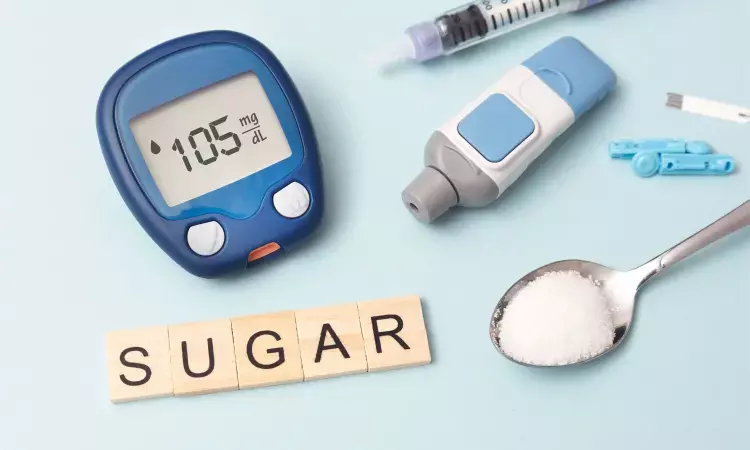- Home
- Medical news & Guidelines
- Anesthesiology
- Cardiology and CTVS
- Critical Care
- Dentistry
- Dermatology
- Diabetes and Endocrinology
- ENT
- Gastroenterology
- Medicine
- Nephrology
- Neurology
- Obstretics-Gynaecology
- Oncology
- Ophthalmology
- Orthopaedics
- Pediatrics-Neonatology
- Psychiatry
- Pulmonology
- Radiology
- Surgery
- Urology
- Laboratory Medicine
- Diet
- Nursing
- Paramedical
- Physiotherapy
- Health news
- Fact Check
- Bone Health Fact Check
- Brain Health Fact Check
- Cancer Related Fact Check
- Child Care Fact Check
- Dental and oral health fact check
- Diabetes and metabolic health fact check
- Diet and Nutrition Fact Check
- Eye and ENT Care Fact Check
- Fitness fact check
- Gut health fact check
- Heart health fact check
- Kidney health fact check
- Medical education fact check
- Men's health fact check
- Respiratory fact check
- Skin and hair care fact check
- Vaccine and Immunization fact check
- Women's health fact check
- AYUSH
- State News
- Andaman and Nicobar Islands
- Andhra Pradesh
- Arunachal Pradesh
- Assam
- Bihar
- Chandigarh
- Chattisgarh
- Dadra and Nagar Haveli
- Daman and Diu
- Delhi
- Goa
- Gujarat
- Haryana
- Himachal Pradesh
- Jammu & Kashmir
- Jharkhand
- Karnataka
- Kerala
- Ladakh
- Lakshadweep
- Madhya Pradesh
- Maharashtra
- Manipur
- Meghalaya
- Mizoram
- Nagaland
- Odisha
- Puducherry
- Punjab
- Rajasthan
- Sikkim
- Tamil Nadu
- Telangana
- Tripura
- Uttar Pradesh
- Uttrakhand
- West Bengal
- Medical Education
- Industry
Add on SGLT2 inhibitors to insulin therapy in diabetes patients lowers blood sugar, BP, and weight without reducing eGFR

SGLT2 inhibitors are a class of drugs that lower blood sugar levels by preventing kidneys from reabsorbing sugar that is created by body and the extra sugar is excreted through urine. Certain SGLT2 inhibitors have been approved for use in patients with chronic kidney disease and/or heart failure to lower the risk of MI, stroke, and/or heart failure flare-ups, including in people who do not have diabetes.
In a research study, “Renal, cardiovascular, and safety outcomes of adding sodium-glucose cotransporter-2 inhibitors to insulin therapy in patients with type-2 diabetes: a meta-analysis”, Qian Zhang and colleagues have found that Addition of sodium-glucose cotransporter-2 inhibitors or SGLT2is to insulin therapy in patients with a history of type-2 diabetes is associated with better glucose control and decreased albuminuria, uric acid, blood pressure, and body weight without reducing eGFR.
The team in this study investigated renal, cardiovascular, and safety outcomes of adding SGLT2is to insulin therapy in T2DM patients by researching databases like Embase, PubMed, and Cochrane libraries for reports published up to Feb 2023.
The researcher included RCTs comparing SGLT2is and insulin combination therapy (SGLT2is + INS group) with insulin therapy alone (INS group) in the relevant groups of patients.
The results of the study are:
- 14 RCTs were included.
- There were six thousand one hundred twenty subjects with 12-104 weeks durations included.
- The SGLT2is + INS group had reduced glycosylated haemoglobin values and insulin dosages compared to the insulin group.
- SGLT2is + INS group had a reduced urinary albumin/creatinine ratio (UACR) by 25.42 mg/g and uric acid concentration.
- There were no changes in the eGFR and renal-related adverse events.
- There were lower BP and body weight values in the SGLT2is + INS group.
- The genital infection risk was greater on adding SGLT2is to insulin therapy.
- Researchers found severe hypoglycemia or UTI risk to be equal between the two groups.
The team said that adding SGLT2is to insulin therapy is tied to better glucose control and decreased albuminuria, uric acid, BP and body weight without affecting eGFR in type 2 diabetes patients.
Further reading:
BDS, MDS in Periodontics and Implantology
Dr. Aditi Yadav is a BDS, MDS in Periodontics and Implantology. She has a clinical experience of 5 years as a laser dental surgeon. She also has a Diploma in clinical research and pharmacovigilance and is a Certified data scientist. She is currently working as a content developer in e-health services. Dr. Yadav has a keen interest in Medical Journalism and is actively involved in Medical Research writing.
Dr Kamal Kant Kohli-MBBS, DTCD- a chest specialist with more than 30 years of practice and a flair for writing clinical articles, Dr Kamal Kant Kohli joined Medical Dialogues as a Chief Editor of Medical News. Besides writing articles, as an editor, he proofreads and verifies all the medical content published on Medical Dialogues including those coming from journals, studies,medical conferences,guidelines etc. Email: drkohli@medicaldialogues.in. Contact no. 011-43720751


